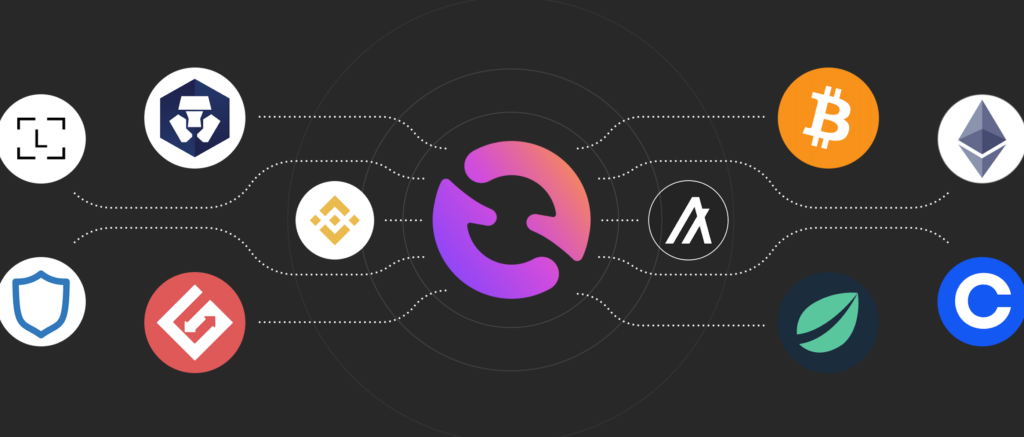
Internal transactions are not an actual transaction on the blockchain. Also called messages, they are transactions that happen when an event is executed by a smart contract.
This article explains what are internal transactions and smart contracts on the Ethereum and EVM-chains and how to track those internal transactions.
Normal transactions in crypto involve deducting an amount from an account and adding it to another account. However, that isn’t all there is to cryptocurrency transactions.
The blockchain is more than a platform for facilitating cryptocurrency transactions, as multiple other operations are running in the background.
With the innovation of DeFi and DApps, more sophisticated transactions, such as internal transactions, that differ from normal transactions now occur on the blockchain.
The rest of this piece sheds light on what an internal transaction is. But to understand what it is and how it works, it’s essential first to examine the core mechanism behind DApps: Smart Contracts.
What are Smart Contracts?
A smart contract is a computer program stored on-chain and designed to self-execute when certain predetermined conditions are met.
They exist across a distributed, decentralized blockchain network, such as Ethereum or other smart contract-capable blockchains. The code controls the execution, and transactions are trackable and irreversible.
It’s primarily used to automate the execution of a trade agreement so that all parties are certain of the eventual outcome without being involved or losing time.
A smart contract can be used to automate workflow, triggering a subsequent action upon fulfilling certain conditions.
What is an Internal Transaction?

An internal transaction is a result of interactions between smart contracts; a result of smart contract logic. Unlike external regular transactions, it is not performed between external addresses.
Instead, it is used for value transfers between one smart contract address and another.
The smart contracts (especially Ethereum smart contracts) themselves initiate these transactions after the fulfillment of preset conditions. For example, they can be used to send ETH or other crypto assets from one part of the contract to EOMs (externally owned accounts).
And while actual transactions carry cryptographic signatures, such as a transaction ID or transaction hash, an internal transaction carries no such signature.
Importance of Internal Transactions in Crypto
Here are the two main reasons an internal transaction is important:
- Smart Contract Execution and Interaction
Internal transactions play a critical role in the execution of smart contracts and their interactions. They allow smart contracts to transfer assets, trigger actions, and communicate with other contracts automatically and without human intervention.
This feature is vital for the complex functionality in decentralized applications (dApps).
For example, an external transaction initiated by a user can trigger a smart contract, which may in turn activate multiple internal transactions. This cascade of operations can involve multiple contracts and lead to intricate chains of interaction, enabling dApps to carry out complex tasks efficiently.
- Enabling Innovative Financial Mechanisms
Beyond basic smart contract operations, internal transactions enable a variety of innovative financial mechanisms unique to the crypto world. They form the backbone of advanced practices such as flash loans, yield farming, and automated market makers, which are pivotal in the DeFi space.
For instance, with flash loans, users can borrow and repay loans within a single transaction, enabled by internal transactions. Similarly, yield farming and automated market makers leverage internal transactions to reward users providing liquidity or to manage the pricing of tokens, respectively.
Internal transactions not only facilitate the fundamental functionality of smart contracts and Dapps but also drive new financial innovations that are reshaping the financial sector.
The Tracking Problem with Internal Transactions

The main problem with internal transactions is that they don’t appear on the chain and don’t contain comprehensive detailed information. This is because internal transactions aren’t real transactions. They’re simply the result of value transfers between one smart contract and another.
Most of the popular crypto wallets, such as MetaMask and Trust Wallet, don’t show details of internal transactions in their transaction history. Rather, they only show standard transactions, external transactions, between two crypto wallet addresses.
To view them users must run the transactions and trace the calls made. If the nodes aren’t powerful enough, they can break during the tracing and cause problems for the rest of the data on the node. On the Ethereum blockchain, such tracings take a long time due to perpetual network congestion and intensive CPU operation.
Thus, as a blockchain user, your node requires a specific CPU power and capacity to track internal transactions. Also, for information on such transactions older than 30 minutes, you’ll have to access an Archive Node containing comprehensive detail on the blockchain’s history.
To put it simply, if you ever want to track internal transactions, you must have the time, node capacity, and power to execute it. Unfortunately, this crypto operation isn’t readily available for every blockchain user, developer, or crypto enthusiast.
Tracking Internal Transactions in Crypto with Vezgo

This almost impossible tracking problem of internal transactions is a headache for establishments that have use cases around crypto tracking. Some of these potential use cases include wealth tracking and management, crypto tax and accounting, crypto-insurance, financial dashboards, and so many more.
Without the ability to track these internal transactions, it is nearly impossible to get the most accurate data from crypto investment portfolios.
Fortunately, there a simple solution.
Vezgo has a solution for snooping into the interactions between smart contracts and the other and tracking the otherwise elusive internal transactions. One that works efficiently and does a whole lot more, as far as the blockchain is concerned.
Whatever information you want to retrieve on the blockchain, whether token or internal transfers, is fully accessible via one of Vezgo API’s many endpoints.
Our powerful Web 3.0 API provides internal transaction traceability capacity for the Ethereum blockchain and other networks built with the Ethereum Virtual Machine.
These EVM Connectors include Ethereum itself, Avalanche, Polygon, Fantom, Cronos, and Polygon. See the full list on the Supported Providers page, in the Blockchain & NFTs section.
With Vezgo API, there’s no need to set up tracers and waste time waiting for results that aren’t 100% guaranteed to come up.
What Else Can You Do With Vezgo API?

Vezgo, defined as the Plaid of crypto, is one excellent blockchain API. Whether you’re an enthusiast with a fondness for dabbling in core blockchain functionalities, or a developer looking to build a crypto project, Vezgo API has everything you need.
Instead of spending hours coding and switching between multiple blockchain and exchange APIs, you can simply use Vezgo to do the following:
- Accounting and Tax Software
- Track entire portfolios on chain and on crypto exchanges (CEXes);
- Tracing transactions of all kinds, normal and internal;
- Track NFT holdings;
- Track xPub, yPub, and zPub.
To test, get your API keys on the client portal.
What are internal transactions in crypto?
It is a result of interactions between smart contracts; a result of smart contract logic. Unlike external regular transactions, it is not performed between external addresses.
Instead, it is used for value transfers between one smart contract address and another. And while actual transactions carry cryptographic signatures, such as a transaction ID or transaction hash, an internal transaction carries no such signature.
How can you track internal transactions?
Vezgo offers a crypto API that allows to track internal transactions on all Ethereum and EVM-based blockchains.
What are smart contracts?
A smart contract is a computer program stored on-chain and designed to self-execute when certain predetermined conditions are met.
They exist across a distributed, decentralized blockchain network, such as Ethereum or other smart contract-capable blockchains. The code controls the execution, and transactions are trackable and irreversible.


Comments (5)
Vezgo Updates #10: Internal Transactions on EVM-Connectors (Ethereum, Avalanche, Polygon, and more). Major Upgrade! - Vezgosays:
5 July 2023 at 10:33 am[…] We cover in-depth internal transactions in this article: What Are Internal Transactions in Crypto & How to Track Them? […]
What is a Financial API?says:
22 August 2023 at 8:00 pm[…] Crypto taxes and accounting with support for internal transactions […]
Crypto Tax Software APIs: The Complete Guidesays:
28 August 2023 at 8:50 pm[…] is recognizes in the industry for its capacity to handle internal transactions on the ETH and other EVM-based networks, and its xPub, yPuv, and zPub […]
How To Create A DeFi App From Scratch: A 5-Stage Guidesays:
10 September 2023 at 9:47 am[…] and Accounting thanks to the best xPub and internal transactions […]
Plaid Crypto vs. Vezgo: 2023's Detailed Breakdownsays:
23 September 2023 at 12:54 pm[…] one of the strongest xPub, yPub, and zPub connector on the market, real-time events from Binance, internal transactions on ETH and other EVM-based chains and a customer focus that can’t be found […]